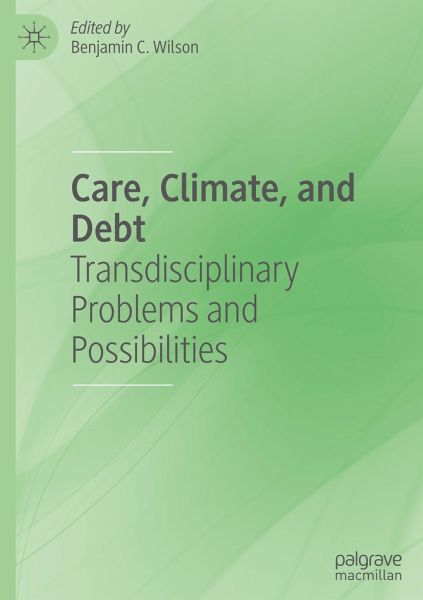
Care, Climate, and Debt
Transdisciplinary Problems and Possibilities
Herausgegeben: Wilson, Benjamin C.

PAYBACK Punkte
0 °P sammeln!
This volume spans economics, history, sociology, law, graphic design, religion, environmental science, politics and more to offer a transdisciplinary examination of debt. From this perspective, many of our most pressing social and environmental crises are explored to raise critical questions about debt's problems and possibilities. Who do we owe? Where are the offsetting credits? Why do such persistent deficits in care permeate so much of our lives? Can we imagine new approaches to balance sheets, measures of value, and justice to reconcile these deficits? Often regarded as a constraint on our...
This volume spans economics, history, sociology, law, graphic design, religion, environmental science, politics and more to offer a transdisciplinary examination of debt. From this perspective, many of our most pressing social and environmental crises are explored to raise critical questions about debt's problems and possibilities. Who do we owe? Where are the offsetting credits? Why do such persistent deficits in care permeate so much of our lives? Can we imagine new approaches to balance sheets, measures of value, and justice to reconcile these deficits? Often regarded as a constraint on our ability to meet the challenges of our day, this volume reimagines debt as a social construct capable of empowering people to organize and produce sustainable prosperity for all. This text is ideal for provoking classroom discussions that not only point out the gravity of the crises we face in the twenty-first century, but also seeks to set readers' minds free to create innovative solutions.














